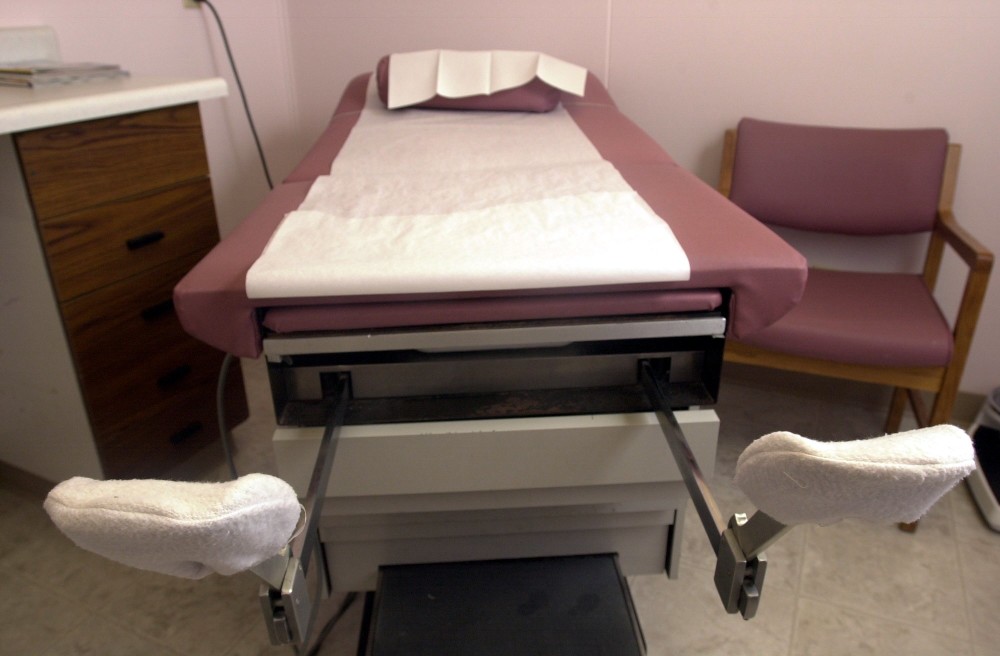By Claire Aronson
Naples Daily News, Fla.
Southwest Florida obstetricians and gynecologists are cautioning women not to be so quick to remove pelvic exams from their annual checkup routine, even after a medical organization said some women don’t need them.
Cristina Tzilinis, an osteopathic physician at A Woman’s Place in Naples, was shocked after hearing the American College of Physicians new guideline that yearly pelvic exams can actually cause harm and don’t benefit women who have no symptoms of disease or who aren’t pregnant.
“Giving the general population that information is really going to hinder people coming in to get tested,” Tzilinis said.
Max Kamerman, a physician at Women’s Healthcare Physicians and chairman of OB-GYN for the NCH Healthcare System, also disagreed with the guidelines.
He added that while the pelvic exam is not the only method to detect ovarian cancer, it is the most basic one.
“Anything else is going to require either imaging or laboratory evaluations, which of course adds to the cost of screening and (women) may not have resources for it,” Kamerman said.
Over time, this new guideline could affect whether an insurance company covers pelvic exams and if they cover it, how much they cover, Kamerman said.
“Unfortunately, Medicare, Medicaid and commercial insurance tends to follow the recommendations put out by the government agencies or professional organizations such as the American College of Physicians,” Kamerman said. “So any type of conclusion such as this one should be thoroughly debated by the various organizations that set the guidelines for what is the standard of care.”
This coupled with the changes in recommendations for pap smears and mammograms that occurred in the past few years may deter women from seeing their providers on a more regular basis, Kamerman said.
“Even though for most women, it won’t make a difference in terms of their health,” he said.
“For some women, it will be a missed opportunity to prevent and/or detect the condition or disease.”
When it comes to women’s health, Kamerman suggests looking to the American College of Obstetricians and Gynecologists’ guidelines as the more authoritative source.
As of Monday, they still recommend yearly pelvic exams in its guidelines.
“It is not to discount what the other organizations say,” Kamerman said. “I am not saying the other ones aren’t right, but you don’t go to RadioShack to buy sneakers. You go to a shoe store to buy sneakers.”
Guy Benrubi, a gynecologist oncologist in Jacksonville and the chair of the OB-GYN department at University of Florida College of Medicine Jacksonville, said he was surprised the American College of Physicians came out with the guideline since it is an internal medicine group.
“I am not quite sure that they are the group that should have made the recommendation,” he said. “I am concerned that the group that doesn’t do pelvic exams came out with the recommendation.”
Benrubi added that there is criteria that exists for how frequently a woman should get a Pap smear and there should be similar criteria for pelvic exams.
According to a statement released by the American College of Obstetricians and Gynecologists on Monday, the use of pelvic exams is supported by the clinical experiences of gynecologists.
Kamerman agreed that there are clinical experiences supporting the use.
“Being that even though the research will show that the pelvic exam doesn’t really benefit the patient, I, as a practitioner, have seen many patients come to me and have a completely normal examination one year and then even within a few months or a year later, they end up being diagnosed with something that is detected by performing the pelvic exam,” Kamerman said, adding he has detected a variety of different infections, vulvar and vaginal cancers, cervical cancer, uterine fibroids, ovarian cysts and ovarian and fallopian tube cancers through pelvic exams.
Tzilinis has also detected uterine cancer, chlamydia and sexually transmitted diseases through a routine pelvic exam.
“When we follow the guidelines and don’t cut corners is when we pick up people who may have otherwise fallen through the cracks,” Tzilinis said.
While women may not need a Pap smear every year, Kamerman said he recommends a yearly pelvic exam because there is a lot more to the pelvic exam than the Pap smear.
He added that many women mistake the pelvic exam for the Pap smear.
“We are inspecting a very important part of your body that is prone to certain diseases and conditions that can be detected and/or prevented with a routine screening,” he said.
In addition to performing the pelvic exam, Tzilinis said during the yearly examination, she talks with patients about family history and other screening tests that are available.
“If you don’t come in, you are going to miss the boat on other things,” she said.
This is not the first time an organization has said certain tests are unnecessary for women. In 2009, the U.S. Preventive Services Task Force said yearly mammograms for women younger than 50 were not necessary.
But, Kamerman said he has seen plenty of women with normal mammograms for years and then from one year to the next, they end up developing breast cancer.
“So imagine if we do not do a mammogram every year and do it every two or three years, a lot of those women may end up with advanced stage breast cancer when it could have been caught in its early stages,” he said, adding the same applies to a pelvic exam.
While these exams may cause anxiety for some women, Tzilinis stressed the importance of the yearly exam.
“We talk about so many things that I hope people don’t take that information and go with it,” she said.














































































































































































































































































































































































